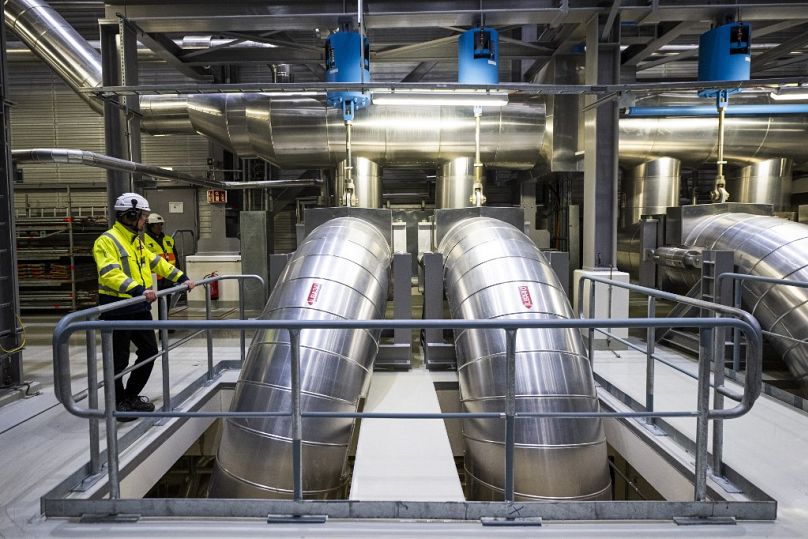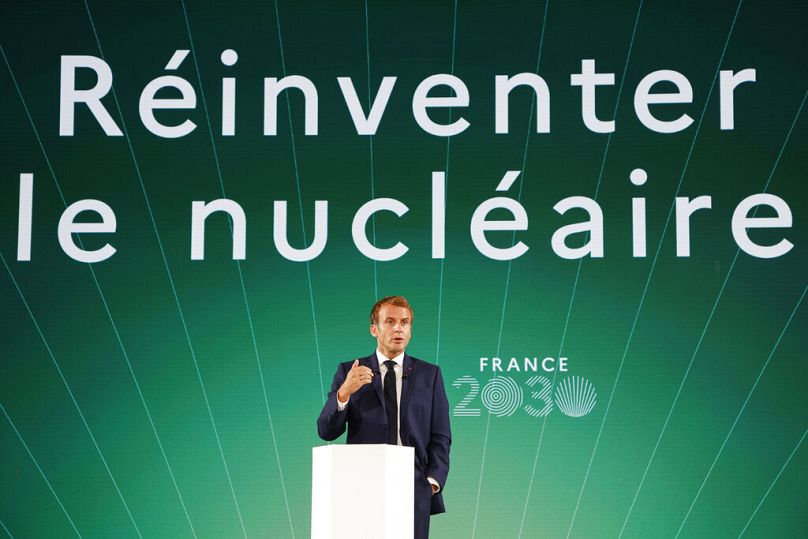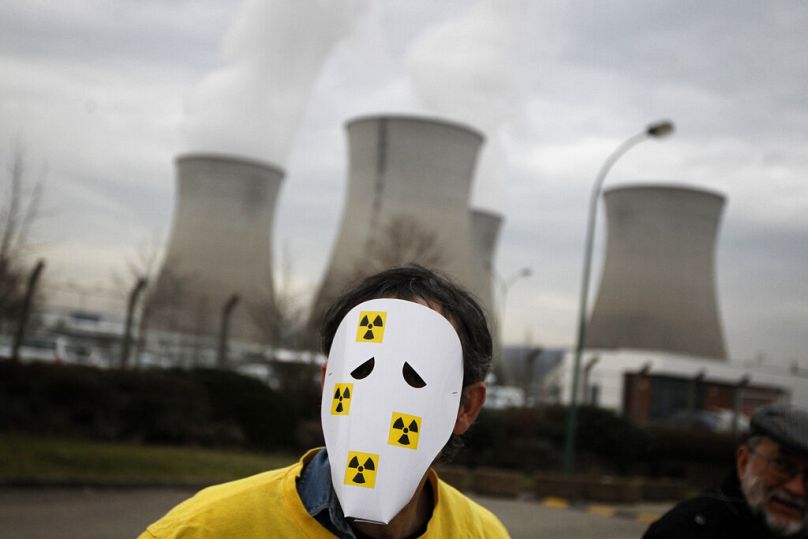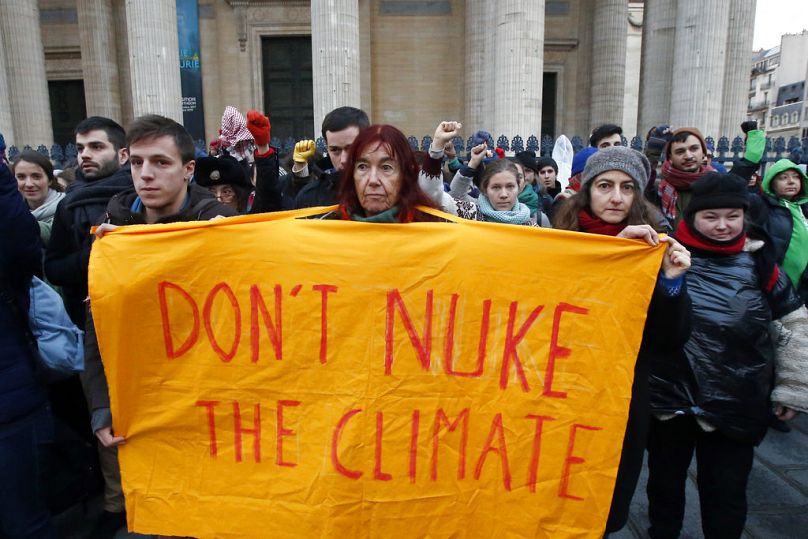Listening to the 14 EU country-strong Nuclear Alliance that lobbied for nuclear power's green label and now wants to see it treated the same as other renewables means everything is allowed, Thomas Stuart Kirkland and Christiana Mauro write.
The European Commission, under the presidency of Ursula von der Leyen, has officially declared climate policy as its number one priority.
But the end of August, in the European General Court in Luxembourg, marks the conclusion of the first phase of one of three lawsuits against the European Commission targeting a key piece of European Green Deal legislation.
These lawsuits were brought not by opponents of climate mitigation policy, but by those, including Austria and a number of environmental groups, who wish to rescue the legislation from what they see as its being fatally compromised.
The pleading in the cases is aimed at revoking the Complementary Climate Delegated Act (CCDA), in force since this January.
This supplements the Taxonomy Regulation, a list of economic activities considered sustainable and thus eligible for green investment, to include, astonishingly, natural gas and nuclear power.
What has led to this situation, in which the EU executive, ostensibly dedicated to achieving its "Fit for 55" plan to substantially reduce greenhouse emissions by 2030, finds itself challenged on its showpiece Green Legislation by one of its own member states?
The answer readily supplied by critics is that it is an appropriate response to one of the most conspicuous triumphs of greenwashing foisted on the public.
The inclusion of gas and nuclear, they say, violates the entire purpose of the Taxonomy Regulation.
The media dropped the ball
This hijacking of the EU’s key instrument of green policy has been openly accomplished through a campaign of misinformation conducted by the nuclear lobby.
In March 2021, seven nuclear member states sent a letter to the European Commission demanding the inclusion of nuclear energy in the taxonomy.
The intervention got some attention from news media at the time, but it was not of a critical kind.
Workaday mainstream journalists with tight deadlines to meet certainly haven’t always been keen to delve into all the nooks and crannies of a complicated story or take the responsibility to come down trenchantly on one side of an issue.
But something more insidious has emerged in recent decades: a paralysis in the face of debate, a willingness to report the scientific controversy and to present both sides in a “fair and balanced” way which gives equal time to the consensus of experts and the hype of hucksters.
Like retired journalist Jay Rosen said, "You don’t get a lot of complaints if you just write down what everyone says and leave it at that."
But this serves the purposes of disinformation, which is not to convince, but to confuse and demoralise. Ultimately, it disables any organised effort to change things.
The Nuclear Seven's claims are, in fact, dubious
When a team of independent journalists took the letter’s statements apart it found that of the 25 factual claims in the letter, 20 were either fictitious or misleading, including the usual dubious assertions about nuclear’s “valuable contribution” to climate neutrality.
However, the conclusions of the crowd-sourced investigation did not find a publisher among the European outlets and went largely unnoticed.
The letter by the Nuclear Seven — France, Poland, Hungary, Czechia, Romania, Slovakia and Slovenia — was bolstered ten days later by the release of a draft report by the European Commission’s Joint Research Centre (JRC).
It had been assigned to determine whether nuclear power met the criteria for inclusion in the taxonomy, specifically, the Do No Significant Harm principle. This, in spite of the trifling fact that the JRC was established under the Euratom Treaty and is still tasked with conducting nuclear research under the aegis, and with the funding, of Euratom.
The report concluded that there was no “science-based evidence” that nuclear could do more harm to the environment than other activities in the taxonomy.
To no one’s surprise; but to considerable criticism from experts, including one of Germany’s nuclear regulatory authorities, and from the European Commission’s own Scientific Committee on Health, Environment and Emerging Risks, both of whom pointed out that the report’s conclusions were not supported by the report’s own findings.
Others noted that the JRC mandate neglected many critical taxonomy elements. In spite of these severe strictures, when the final JRC report was published a few months later it contained no revisions.
Nuclear lobby's swagger
The extent of the influence of the Nuclear Seven and the JRC report on the ultimate decision to formally label nuclear as sustainable is unclear, but likely decisive.
And buoyed up by this, the EU’s successful nuclear lobby has been conducting itself with noticeable swagger.
From the seven signatories of the 2021 letter, the Nuclear Alliance, as it is now known, has expanded to 14 EU countries with the addition, in February, of Bulgaria, Croatia, Finland and the Netherlands, followed by Belgium, Estonia and Sweden, with Italy as an observer.
Now representing a majority in the EU, the Alliance has been emboldened to demand, at their fourth meeting in Spain on 11 July, that nuclear energy should be treated equally with renewables when it comes to EU funding and the promotion of joint projects.
Under their banner of “tech neutrality” — an echo from the 2021 letter — the Alliance has already successfully lobbied for the acceptance of nuclear-produced "pink hydrogen” as "green hydrogen” and managed to wring important concessions in the revision of the Renewable Energy Directive, which would almost double the share renewable in the EU’s overall energy consumption by 2030.
These concessions allow for a greater role of nuclear power in meeting these targets.
Everything goes as sustainability loses its essence
As a crowning irony, the Nuclear Alliance is led by France, whose own national law — a 2015 decree on the "Energy and Ecological Transition for Climate" label — excludes atomic energy from being classified as a green investment.
In “Diversion from urgent climate action”, WISE’s nuclear expert Jan Haverkamp makes the case that vigorous nuclear industry lobbying in Brussels has had a “direct influence on the speed with which urgent climate action is taken”, slowing down the adoption of renewable energy sources, which is a boon for the fossil fuel industry.
Sustainability having lost its meaning, everything is allowed.
And so, living in the Upside Down, we are witness to the triumph of the nuclear lobby.
In the post-CCDA landscape, the nuclear zombies have acquired a new green sheen as they shamble and shuffle pointlessly, consuming all the oxygen in the climate policy conversation until they ultimately expire in obscene cost overruns and non-delivery of their boastfully promised but illusory results.
Thomas Stuart Kirkland and Christiana Mauro are freelance reporters covering Eastern Europe.
At Euronews, we believe all views matter. Contact us at view@euronews.com to send pitches or submissions and be part of the conversation.















